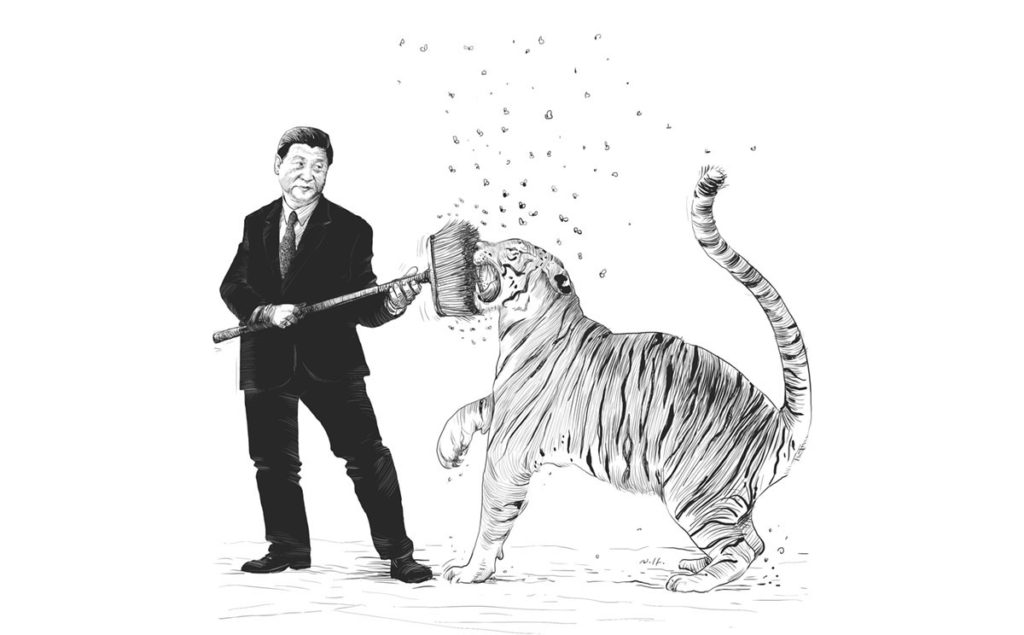Today’s paper is a mood-booster. Well, it boosted mine at least.
We all know corruption is bad. The reason there’ve been so many studies into it and the behavior so well documented is there’s, sadly, so much of it.
Researchers from the Huazhong University of Science and Technology and the Zhongnan University of Economics and Law though wondered if there were tangible benefits, in terms of stimulating entrepreneurial activity specifically, to eradicating it?
Problem is there’s been such patchy success on that front that it’s been hard to find places to study for the effect. Until now.
Shortly after President Xi Jin Ping’s installation in November 2012 he began a now famous campaign to eradicate the ‘Tigers and Flies’ i.e. the big AND little actors in China’s then corruption-tainted administration.
Initially the population yawned. New political brooms always promise to sweep clean but rarely do (drain-the-swamp anyone?) and China, up until Xi, had had many previous sporadic campaigns. A few miscreants were rounded up and some chickens are killed to frighten the monkeys. Then life returned to ‘normal’; but not this time.
Xi didn’t just launch a one-time anti corruption campaign; his team have been enthusiastically ferreting-out shabby operators ever since. Moreover, as good as his word the campaign has brought down the mighty as well as the minnows and, on any calculation, has been a great success.
This is just the sort of situation social scientists look for. A stable condition, an unexpected shock and a changed state thereafter and Dongmin Kong and Ni Qin believe their paper may be a first in terms of being able to study just how beneficial reducing corruption is in terms of fomenting entrepreneurial activity in its wake.
By the use of a clever proxy (stored value gift cards, who knew?) the researchers were able to demonstrate corruption reduction on a very granular level. Then, after a lag, indications of increased entrepreneurial activity show up in proportion to how well corruption had been squelched.
They believe four factors are at work:
- Reduced rent seeking gives entrepreneurs more room to develop
- Improved quality of government allows more rapid business formation
- Technology spill-over from greater innovation provides a societal good
- Non-SOEs find it easier to get credit because nest-feathering SOEs are held in check more effectively
Bottom line. We know corruption is bad. Now we also know how good an environment, where corruption has been (er?) arrested, can be and some of the benefits that accrue in such a space.
The paper is necessarily China specific but the researchers suggest (and it seem intuitively almost certain) their findings have universal application. You can access the work in full via this link Anti-Corruption and Entrepreneurship.
Happy Sunday.
